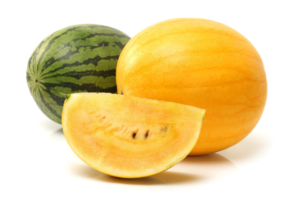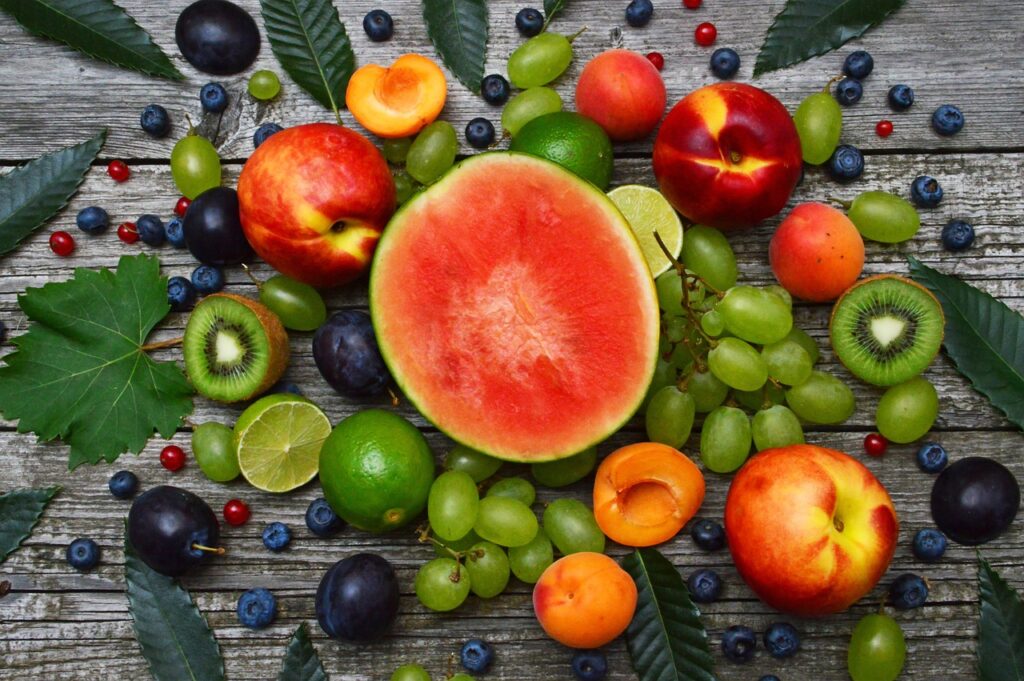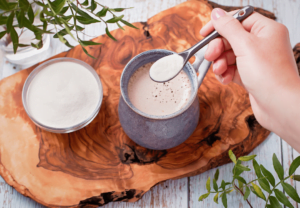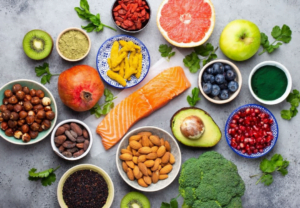Watermelon offers a fantastic solution to anyone looking for a nutritious sweet snack.
Not only does it quench thirst and satisfy cravings, but it is packed with beneficial nutrients.
This article will explore the amazing health benefits of watermelon and why you should consider incorporating it into your diet.
Origins of Watermelon
Even though it is thought to have originated in Africa, evidence reveals that watermelon was also grown in ancient Egypt.
Watermelon gained popularity across the globe over time, particularly in China and the Mediterranean region.
Nutritional Profile
Watermelon has an abundance of vitamins, minerals plus protective antioxidants and it is low in calories.
It’s loaded with healthy nutrients including vitamin C, vitamin A, potassium, and magnesium.
Moreover, lycopene, an effective antioxidant, is also present; giving the watermelon its characteristic scarlet color while providing various health benefits
Health Benefits of Watermelon
Hydration and Electrolyte Balance
This is important for proper bodily functioning, regulating temperature, and generally ensuring good health.
Watermelon offers an ultimate solution in this regard with its substantial water content.
Additionally, this fruit has electrolytes such as potassium which contribute significantly to maintaining the equilibrium of fluid levels in the body.
Rich in Antioxidants
The high levels of the antioxidants vitamin C and lycopene contained in watermelon can help diminish the risk of developing cancer and cardiovascular disease.
These antioxidants help neutralize destructive free radicals in the body’s cells, thereby safeguarding them from harm.
Promotes Heart Health

The combination of vitamins, minerals, and antioxidants present in watermelon makes it beneficial for heart health.
Watermelon is abundant in lycopene, which studies show may lessen the chance of developing heart disease.
Furthermore, it provides potassium that aids in the regulation of blood pressure levels.
Relieves Muscle Soreness
Watermelon contains an amino acid called L-citrulline, which helps reduce muscle soreness and promote post-exercise recovery.
L-citrulline aids in blood vessel relaxation, boosting blood flow and supplying muscles with more oxygen.
Supports Digestive Health
Watermelon is an excellent source of dietary fiber, which is essential for keeping your digestive system working properly.
Fiber aids in regular bowel movements, prevents constipation, and promotes overall digestive health.
In addition, the high water content of watermelon can contribute to softening stools and preventing dehydration-related digestive issues.
Aids Weight Loss
If you’re interested in shedding a few pounds, including watermelon in your diet can be beneficial.
With its high water content and low-calorie count, watermelon provides a feeling of fullness while keeping overall calorie intake in check.
It is a healthy and satisfying snack option for those aiming to lose weight.
Boosts Immune System
The high abundance of vitamin C in watermelon is important for fortifying the immune system.
This essential nutrient stimulates the production of white blood cells, which can defend against illnesses and ailments.
As such, vitamin C makes an indispensable contribution to a healthy immune system.
Enhances Skin Health
The combination of vitamins A and C found in watermelon contributes to healthier and more radiant skin.
Vitamin C helps to produce collagen, which promotes skin elasticity and lessens the visibility of wrinkles.
Meanwhile, vitamin A gives your skin a youthful glow by assisting in skin cell renewal and repair.
Watermelon’s hydrating qualities also assist in maintaining the moisture and suppleness of your skin.
Natural Detoxifier
Watermelon can be a great detoxifier. It is a good source of hydration that helps to flush toxins and impurities away, keeping your kidneys functioning properly and encouraging natural cleansing.
Moreover, its antioxidant content helps eliminate harmful compounds from the body, thus boosting its detoxification potential.
Reduces Inflammation
Chronic inflammation is linked to heart disease, arthritis, and certain cancers.
Watermelon contains anti-inflammatory chemicals including lycopene and cucurbitacin E.
Inflammation-related illnesses may be reduced by eating watermelon regularly.
Improves Eye Health

Watermelon is packed with beta-carotene, which can be transformed into vitamin A in the body.
This vital vitamin helps to maintain optimal eyesight and overall ocular health.
Making sure to consume a sufficient amount of watermelon assists in shielding against age-related macular deterioration and avoiding night vision issues.
May Help Lower Blood Pressure
Heart disease and stroke are significantly increased by high blood pressure.
The citrulline in watermelon helps manage blood pressure levels by widening the blood vessels.
Regular consumption of watermelon may contribute to maintaining healthy blood pressure levels.
Ways to Enjoy Watermelon
Watermelon can be enjoyed in numerous ways, such as:
Sliced: Simply slice it into wedges or cubes and enjoy it as a refreshing snack.
Smoothies: Blend watermelon with ice and other fruits for a delicious and healthy smoothie.
Salads: Add watermelon to salads for a sweet and refreshing twist.
Sorbet: Freeze watermelon chunks and blend them into sorbet for a healthy dessert.
Moreover, this fruit comes in different varieties, with their own special qualities and origins.
Some popular watermelon varieties include:
Crimson Sweet: This variety is known for its deep red, juicy flesh, and high sugar content.
This plant is native to various regions of the world including the USA, Mexico, and Australia, and the exterior has green stripes.
Sugar Baby: Sugar Baby watermelons are small in size, making them perfect for personal consumption. They have a dark green rind and sweet, red flesh. This variety is widely grown in the United States.
Charleston Gray: Charleston Gray watermelons are large, oblong-shaped fruits with a light green rind and sweet pink flesh.
They are commonly found in the United States, especially in the southern states.
Black Diamond: This variety is known for its large size and dark green, almost black rind. The flesh is deep red and very sweet. Brazil, China, and the US are just a few of the countries that cultivate Black Diamond watermelons.
Moon and Stars: Moon and Stars watermelons are unique due to their dark green rind speckled with yellow spots resembling stars and a larger spot resembling the moon. The flesh can be pink or red, and they are typically grown in the United States.
Orangeglo: Orangeglo watermelons stand out with their bright orange flesh, which is incredibly sweet and juicy. They have a green rind with yellow mottling and are commonly grown in the United States.

Yellow Doll: As the name suggests, Yellow Doll watermelons have vibrant yellow flesh that is both sweet and crisp. They have a thin, light green rind and are primarily grown in the United States.
Seedless Watermelons: Seedless watermelons are a popular choice due to their convenience. They have been bred to produce small, edible seeds or no seeds at all.
Seedless varieties, such as the popular Crimson Sweet Seedless and Sugar Baby Seedless, can be found in many countries worldwide.
By exploring different watermelon varieties, you can discover new flavors and textures to enjoy.
Consuming watermelon seeds presents no danger to your health, as these are actually quite edible.
If you choose to eat watermelon seeds, you can chew them or even roast them for a crunchy and nutritious snack.
Watermelon seeds boast a substantial amount of protein as well as beneficial fats and minerals like magnesium, zinc, and iron.
Plus, they can really bring some extra flavor and texture to many dishes.
Feel free to enjoy watermelon seeds, but if you’d rather not eat them, seedless varieties are widely available.
Conclusion
Watermelon offers not only a delightful taste and refreshing experience for hot summer days, but it is also a nutritional powerhouse offering plenty of health benefits.
From promoting hydration and heart health to aiding digestion and possibly preventing cancer, watermelon is a fruit worth including in your diet.
The next time you’re looking for a nutritious and flavorful treat, why not grab yourself some slices of succulent watermelon?
FAQs
1. Is watermelon a good option for weight loss?
Yes, watermelon can be a good option for weight loss.
Watermelon is a great snack choice, as it contains very few calories but is high in water content.
This makes it an ideal option if you want to stay satisfied between meals while keeping your total calorie count low.
Furthermore, watermelon is a nutritious and satisfying snack that can help reduce cravings for unhealthy foods.
2. Can watermelon replace the need for drinking water?
Thanks to its abundant water content, watermelon is an ideal way to hydrate. Even so, it should never be used in place of plain old H2O.
Watermelon helps retain hydration, but drinking lots of water is essential to satisfy your body’s daily requirements
3. How much watermelon should I consume to reap its benefits?
There are no exact rules about how much watermelon you should eat.
It varies according to individual requirements and tastes.
However, incorporating a serving or two of watermelon into your daily diet can provide you with its health benefits.
Remember that balance is essential in maintaining a healthy diet, and including a good mixture of other fruits and vegetables will benefit you greatly.
4. Can watermelon be beneficial for people with diabetes?
Watermelon contains natural sugars, so people with diabetes should consume it in moderation and be mindful of their overall carbohydrate intake.
Watermelon does not considerably raise blood sugar levels because of its low glycemic index.
Discuss the best portion size and how it fits into your diet with your doctor or a registered dietitian if you have diabetes
5. Can eating too much watermelon have any negative effects?
While watermelon is generally safe to consume, excessive intake may have some potential side effects.
Large amounts of watermelon may cause electrolyte imbalances and excessive urination due to its high water content
It’s also crucial to remember that watermelon includes natural sugars, so eating too much of it might raise your intake of sugar in general.










